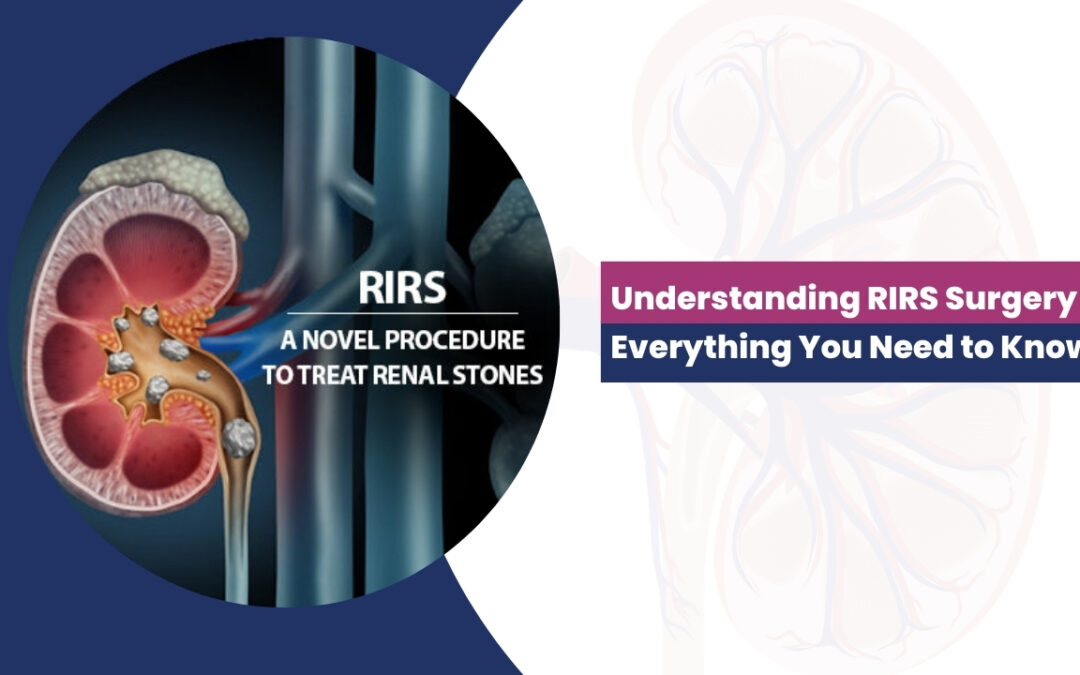RIRS Surgery Cost in Hyderabad
The cost of RIRS surgery in Hyderabad can vary based on several factors such as the hospital chosen, the surgeon’s experience, and the complexity of the case. On average, the cost ranges from INR 70,000 to INR 1,50,000. It’s advisable to check with multiple hospitals to get an accurate estimate and understand what the cost includes.
Kidney stones can be incredibly painful and disruptive, affecting your daily life significantly. Luckily, medical advancements have provided us with several treatment options, among which RIRS (Retrograde Intrarenal Surgery) stands out. This article will delve into the intricacies of RIRS surgery, from the procedure itself to recovery and cost, especially focusing on Hyderabad. If you’re considering this treatment, keep reading to get all your questions answered.
What is RIRS Surgery?
RIRS, or Retrograde Intrarenal Surgery, is a minimally invasive surgical procedure used to remove kidney stones. Unlike traditional open surgery, RIRS utilises a flexible ureteroscope to access the kidney through the urinary tract, eliminating the need for external incisions. This method ensures a quicker recovery and less post-operative pain.
Benefits of RIRS Surgery
One of the main advantages of RIRS surgery is its minimally invasive nature. Patients experience less pain, reduced hospital stays, and quicker recovery times compared to traditional methods. Additionally, the high success rate of RIRS makes it a preferred choice for many urologists and patients.
RIRS Procedure Steps
Pre-Surgery Preparations
Before the surgery, a thorough evaluation is conducted, including imaging tests like CT scans to locate the stones accurately. Patients are advised to fast for a few hours prior and may need to undergo routine blood tests.
Detailed Step-by-Step Process
- Anesthesia: The patient is administered general or spinal anesthesia.
- Insertion of Ureteroscope: A flexible ureteroscope is inserted through the urethra and bladder into the kidney.
- Stone Fragmentation: Once the stones are located, they are fragmented using a laser.
- Stone Removal: The fragments are then removed using a basket-like device.
- Stent Placement: A temporary stent may be placed to ensure proper drainage and healing.
Post-Surgery Care
After the procedure, patients are monitored for a few hours. Pain management and hydration are crucial. Instructions on medications and activity restrictions are provided before discharge.
RIRS Symptoms
Here are the symptoms that may indicate the need for Retrograde Intrarenal Surgery (RIRS):
- Severe flank pain: Often on one side of the body, indicating kidney or ureteral stones.
- Blood in urine (hematuria): This can range from visible red discoloration to microscopic levels detected through tests.
- Frequent urinary tract infections (UTIs): Recurring infections may signal the presence of kidney stones.
- Difficulty urinating: Pain or difficulty while passing urine can be a symptom.
- Nausea and vomiting: These symptoms may accompany severe pain from kidney stones.
- Persistent urge to urinate: Feeling the need to urinate frequently, even when there is little urine.
- Fever and chills: Indicating a possible infection in the urinary tract.
If you experience these symptoms, Consult Wellness Hospital is one of the best hospitals in Hyderabad with specialized doctors in urology and general surgery. Book an appointment for your RIRS treatment now.
Who Needs RIRS Surgery?
RIRS is recommended for patients with kidney stones that are not amenable to other less invasive treatments like ESWL (Extracorporeal Shock Wave Lithotripsy). It’s particularly beneficial for stones located in difficult-to-reach areas of the kidney or for those who have failed other treatments.
Finding the Best Hospital for Kidney Stone Treatment in Hyderabad
When looking for the best hospital for kidney stone treatment in Hyderabad, consider factors such as the hospital’s reputation, the experience of the urology team, and patient reviews. Wellness Hospital is one of the best hospitals in Hyderabad with specialized doctors in urology and general surgery. Book an appointment for a specialist urology doctor.
Recovery Timeline
The recovery timeline for RIRS surgery is relatively quick. Most patients can return to their normal activities within a week. Complete healing and the removal of the stent (if placed) usually occur within a few weeks to a month.
Tips for a Smooth Recovery
- Stay Hydrated: Drink plenty of water to help flush out the kidneys.
- Follow Dietary Recommendations: Avoid foods that can contribute to stone formation.
- Take Medications as Prescribed: Complete the full course of antibiotics and painkillers.
- Attend Follow-Up Appointments: Regular check-ups ensure proper recovery and prevent complications.
Comparing RIRS with Other Kidney Stone Treatments
Which is Better RIRS vs. ESWL
ESWL is a non-invasive procedure that uses shock waves to break up stones. However, it might not be effective for larger or harder stones. RIRS, being more direct, is effective for a wider range of stone types and locations.
Which is Better RIRS vs. PCNL
Percutaneous Nephrolithotomy (PCNL) involves a small incision in the back to remove stones. It’s used for larger stones but comes with a longer recovery time and a higher risk of complications compared to RIRS.
Conclusion
RIRS surgery represents a significant advancement in the treatment of kidney stones, offering a minimally invasive option with high success rates and quick recovery times. For those suffering from kidney stones, especially in Hyderabad, understanding the procedure, its benefits, costs, and care requirements is crucial. With the right information and medical support, you can make an informed decision and look forward to a stone-free life.
FAQs
1. How long does the RIRS procedure take?
The procedure typically takes between 1 to 2 hours, depending on the complexity.
2. Is RIRS painful?
Most patients experience minimal pain, managed effectively with medication.
3. Can kidney stones recur after RIRS?
Yes, stones can recur. Long-term management and dietary changes are essential to prevent recurrence.
4. When can I resume normal activities after RIRS?
Most patients can return to normal activities within a week, but it’s best to follow your doctor’s advice.
5. Is RIRS suitable for all types of kidney stones?
RIRS is effective for most types of stones, especially those located in difficult-to-reach areas.


